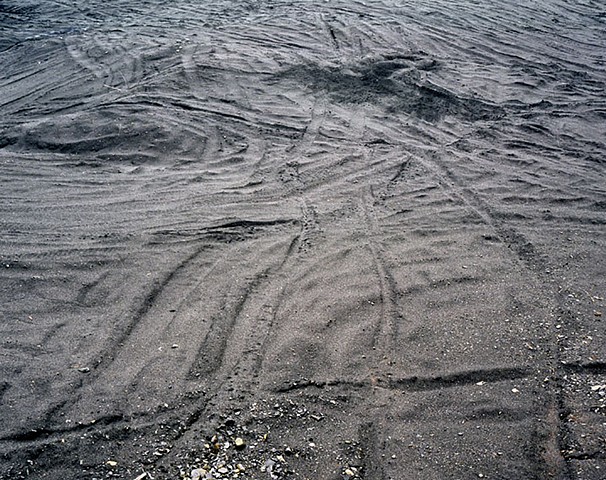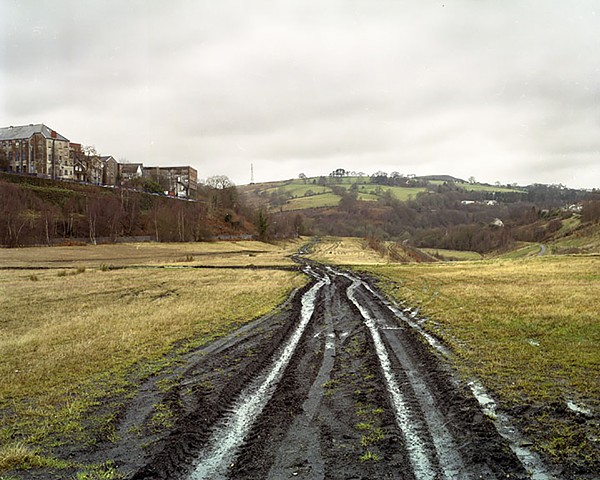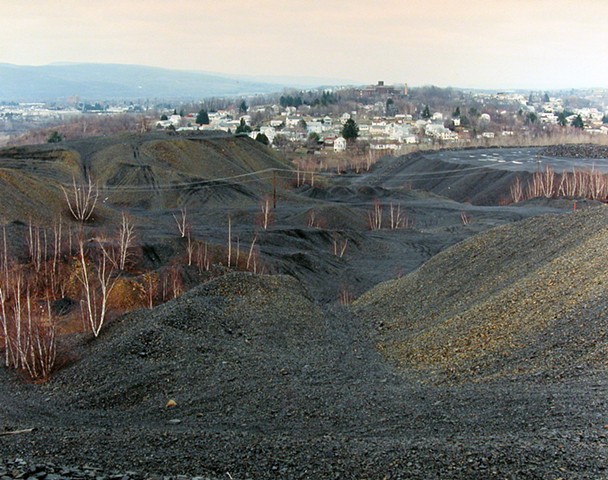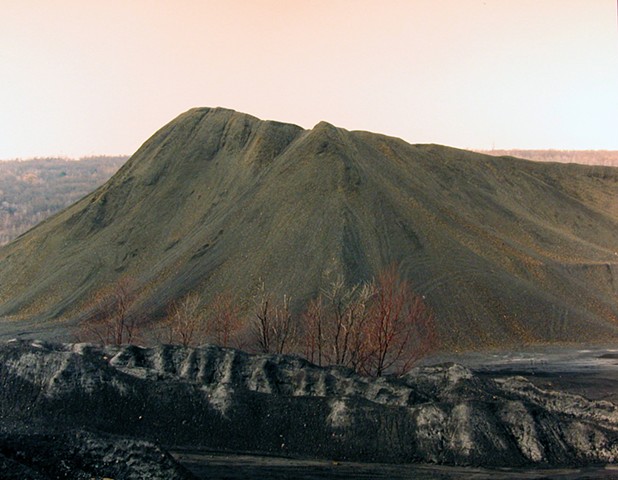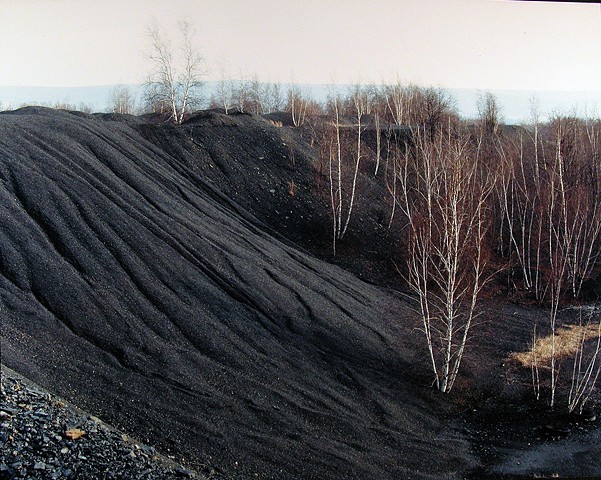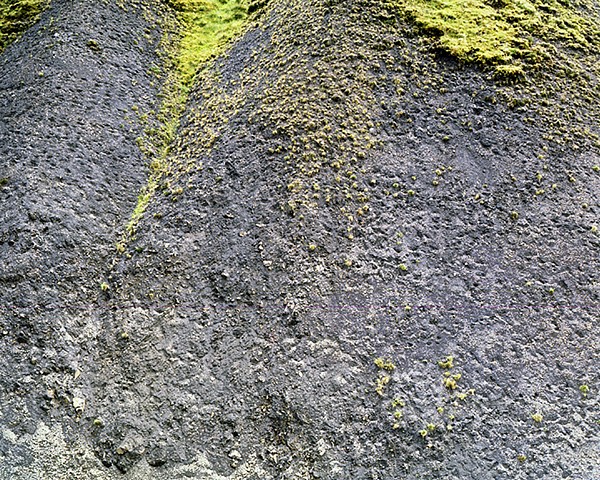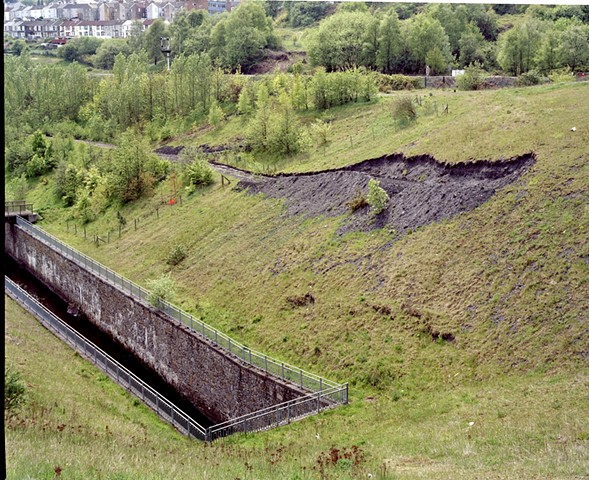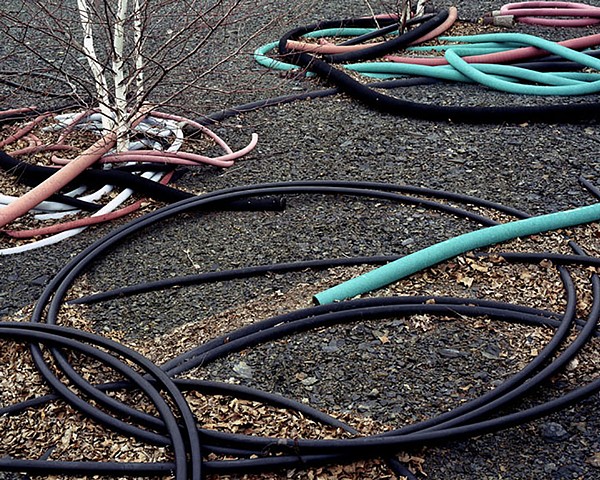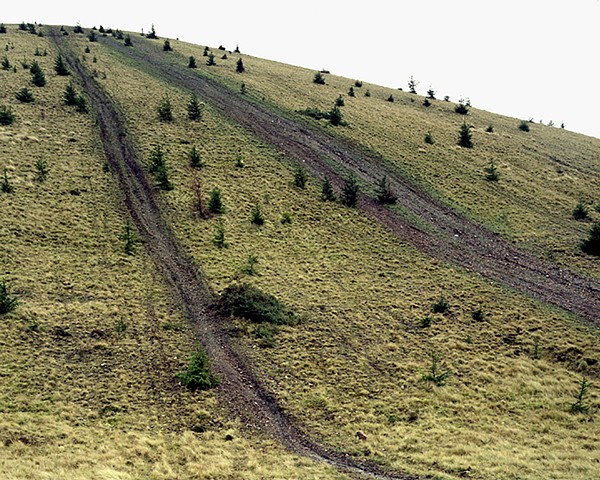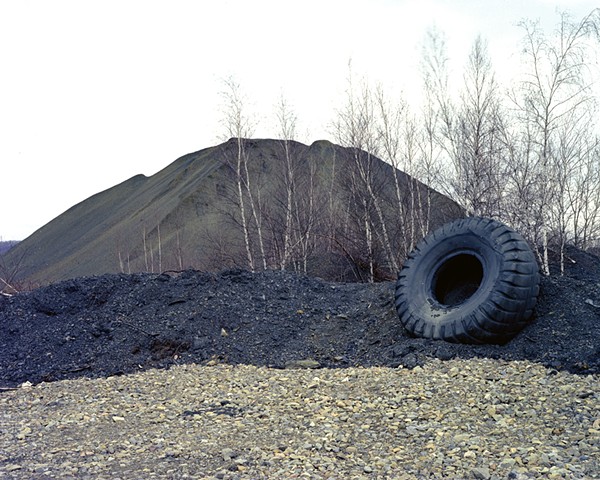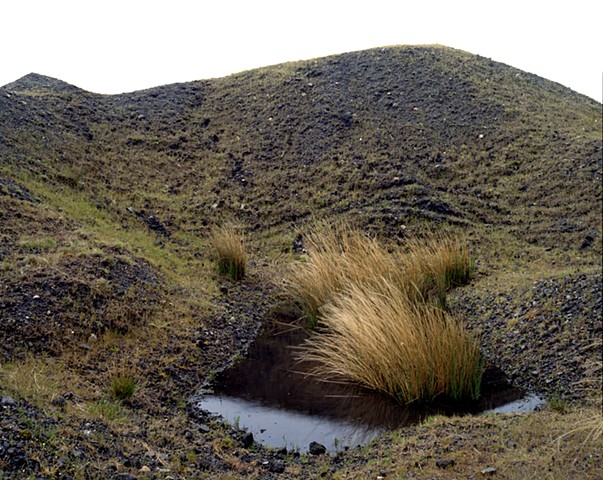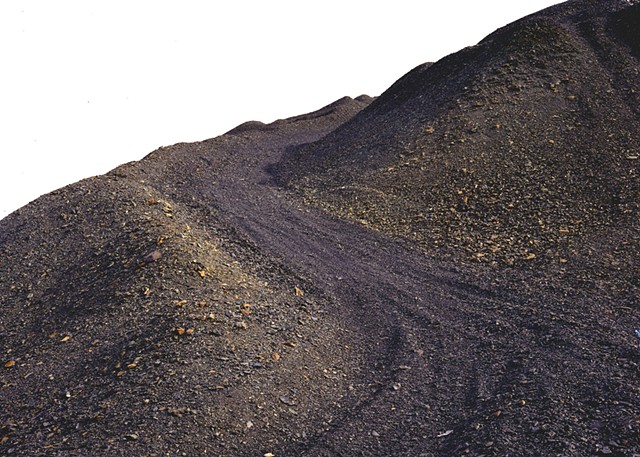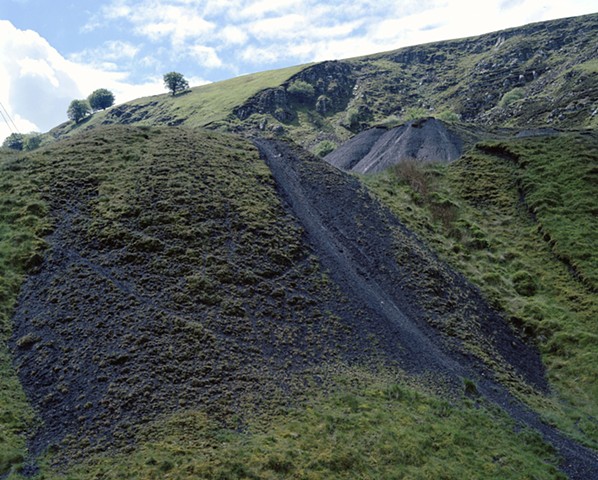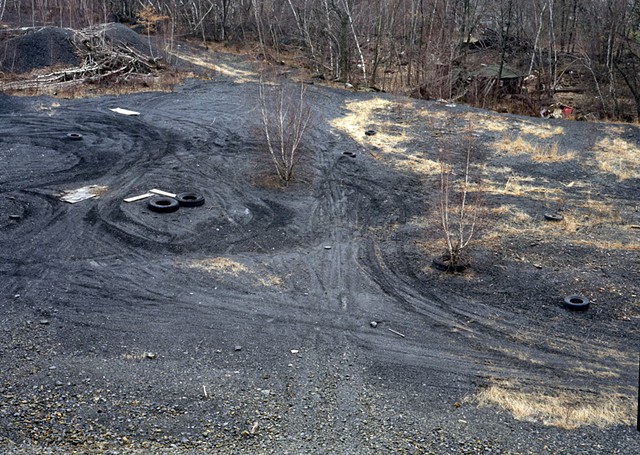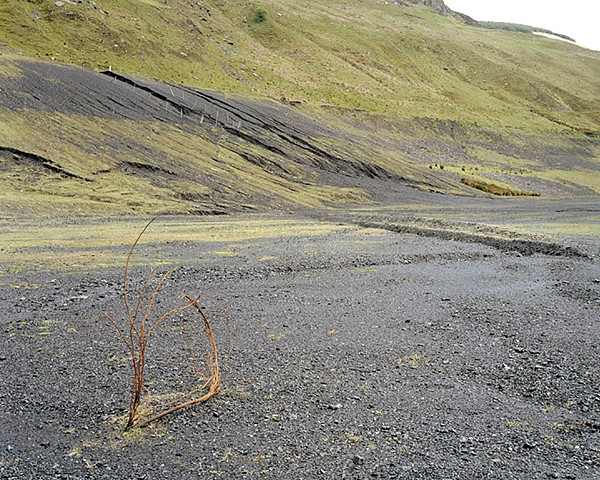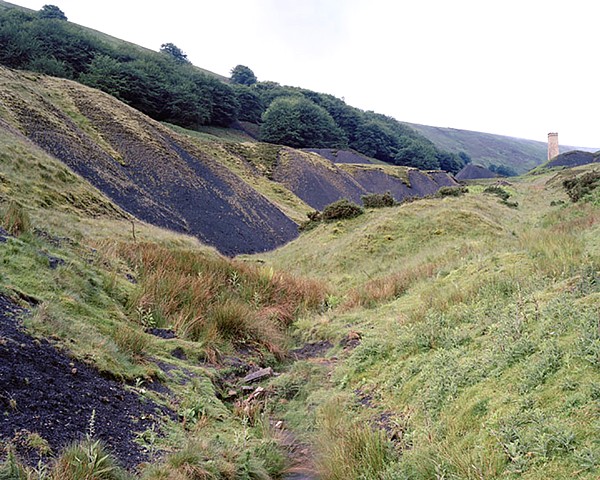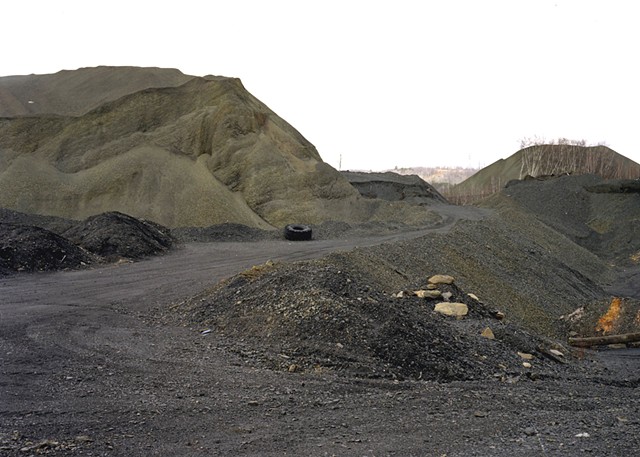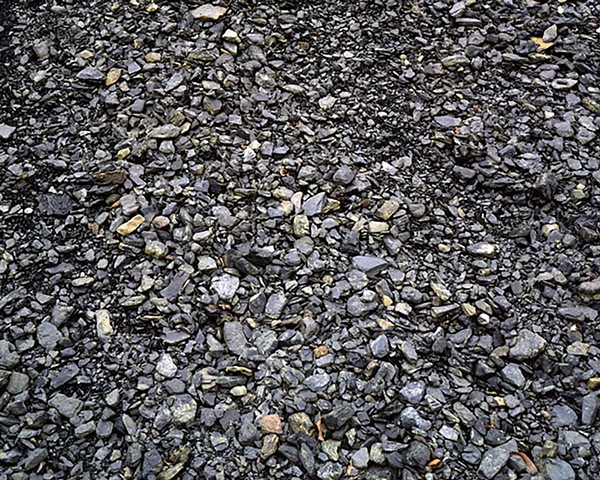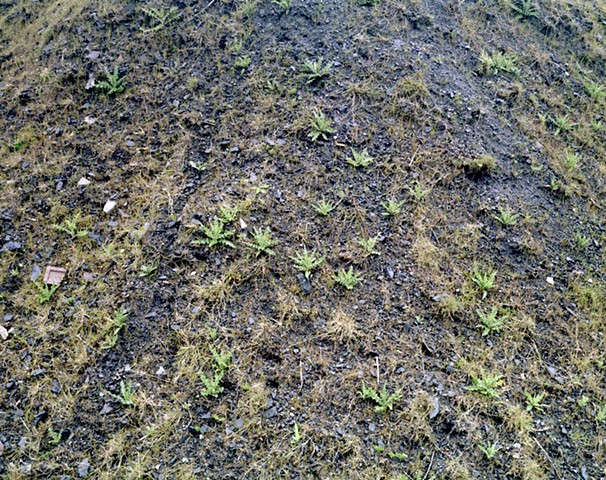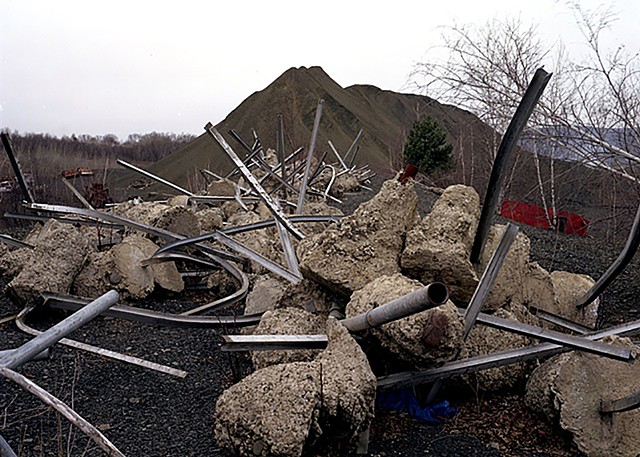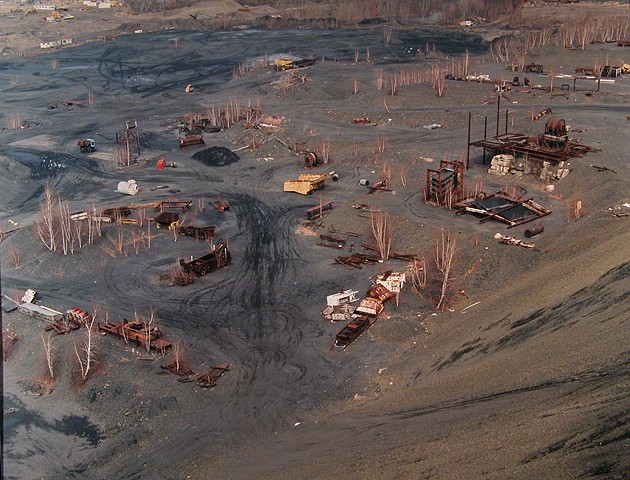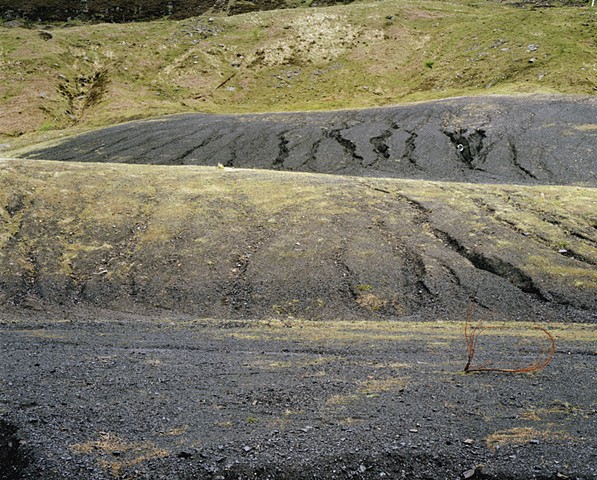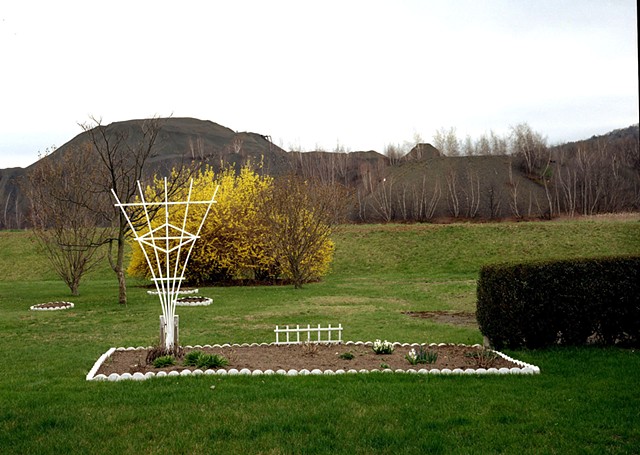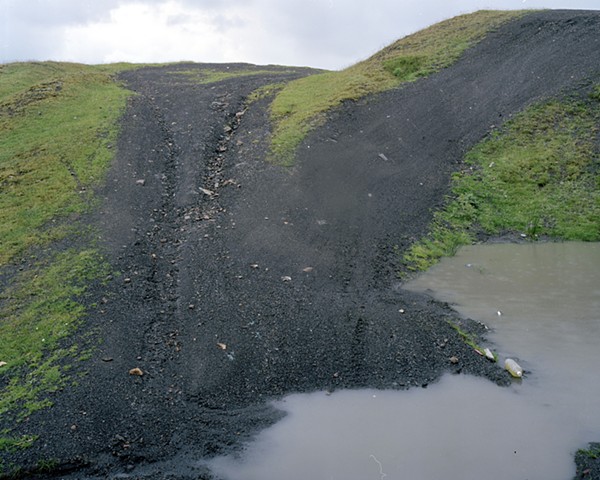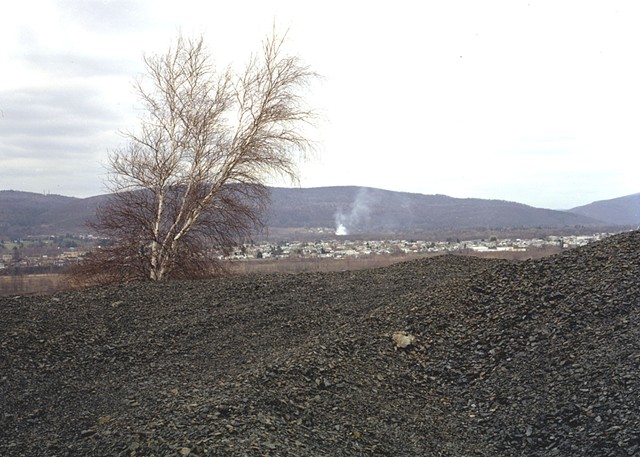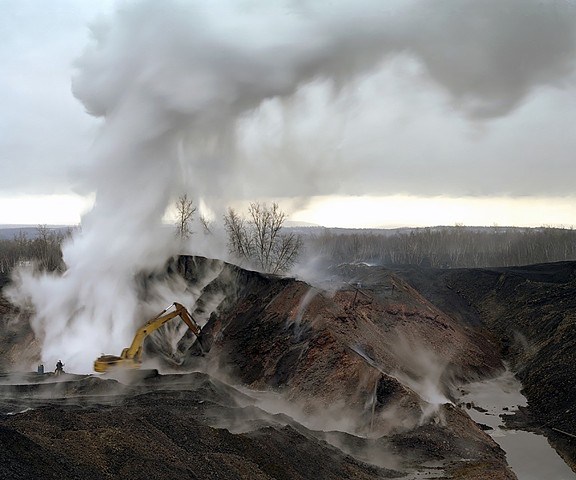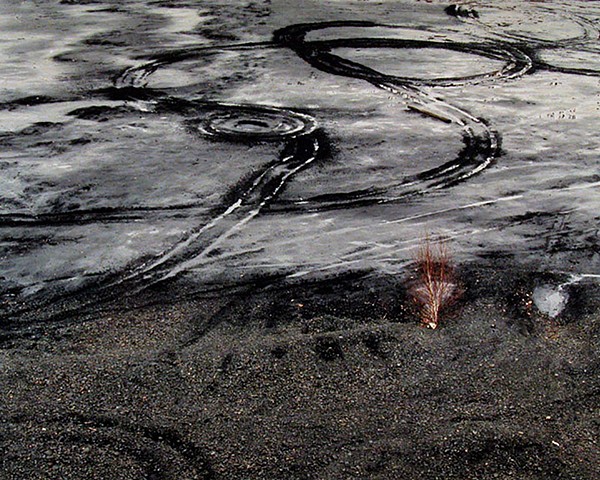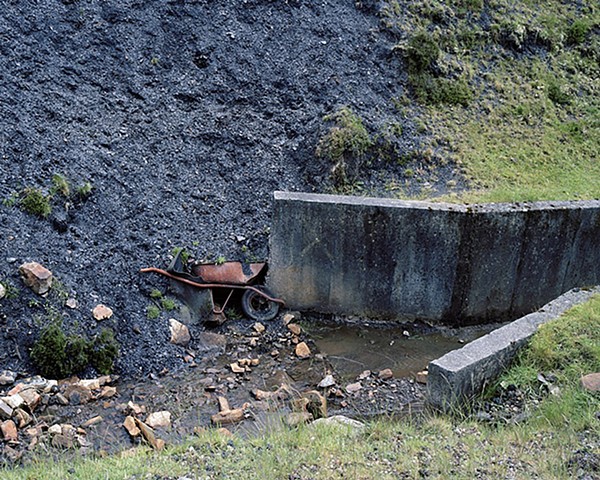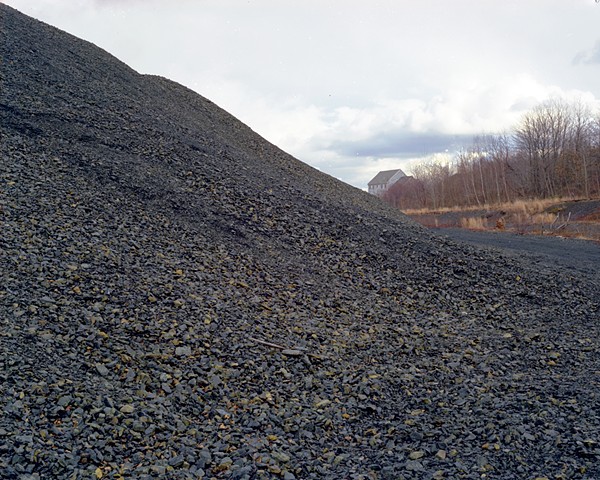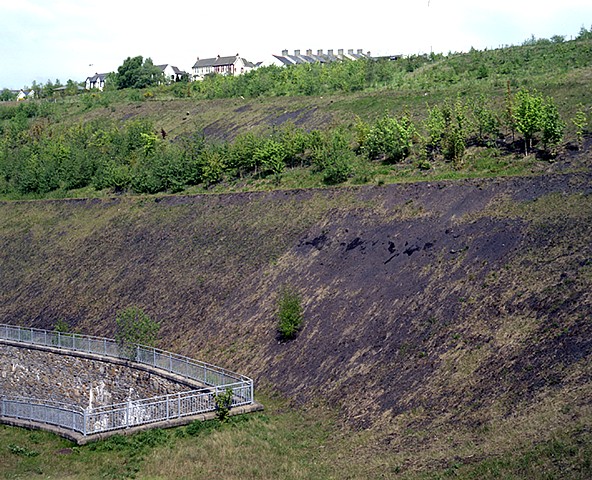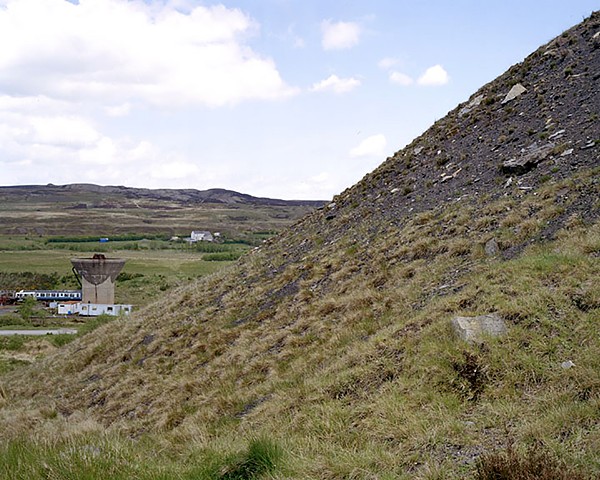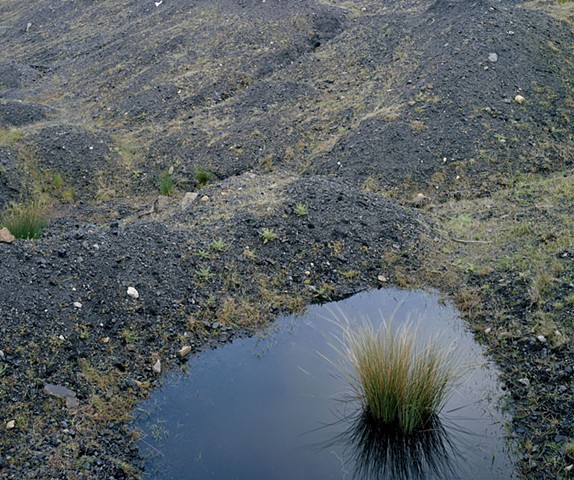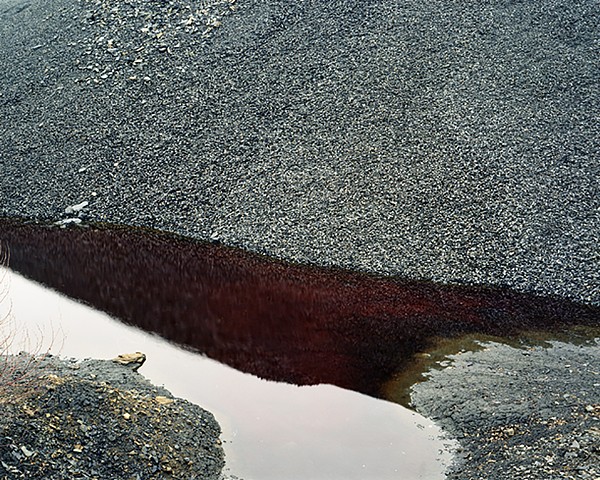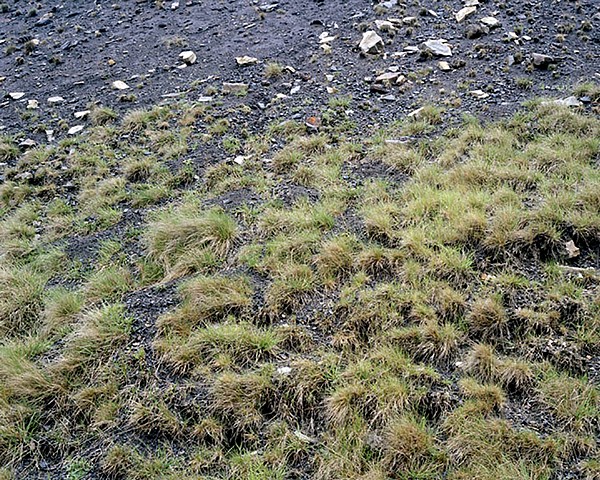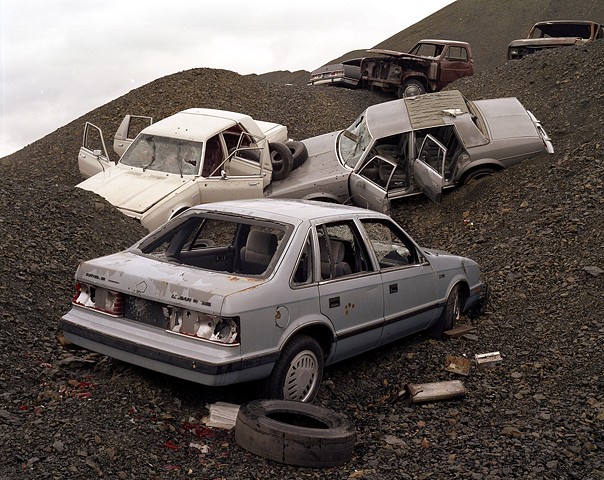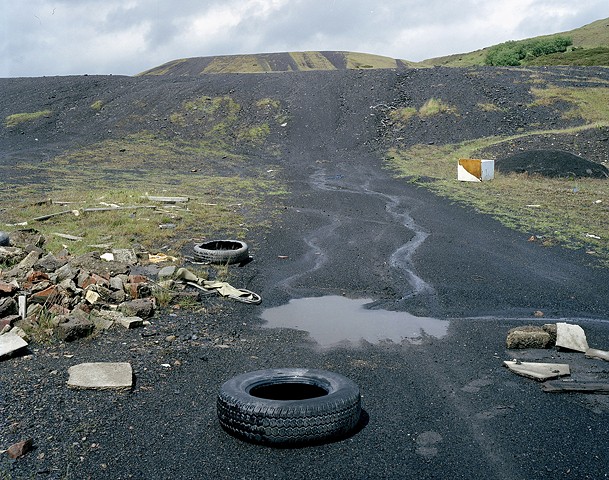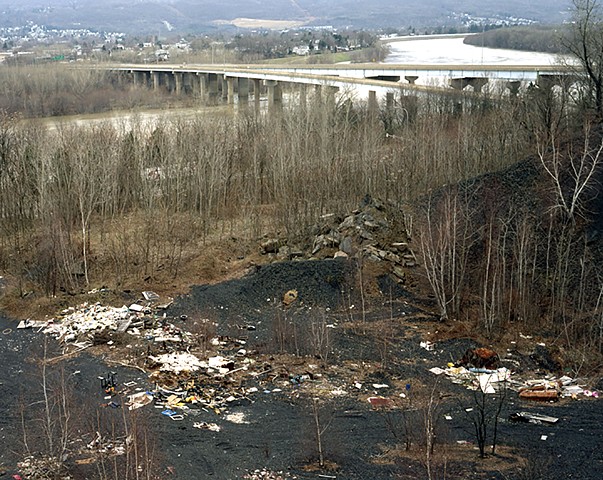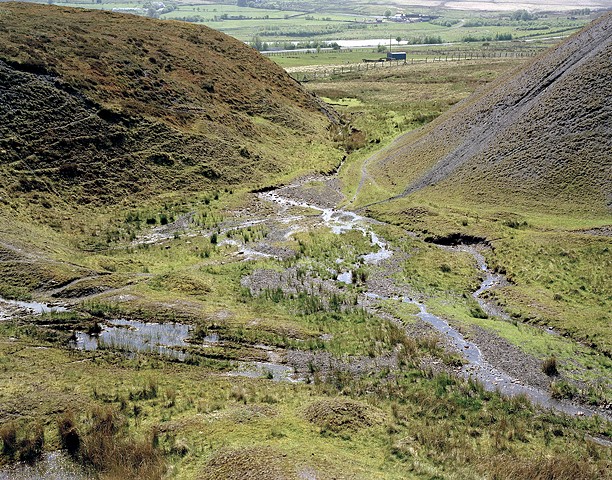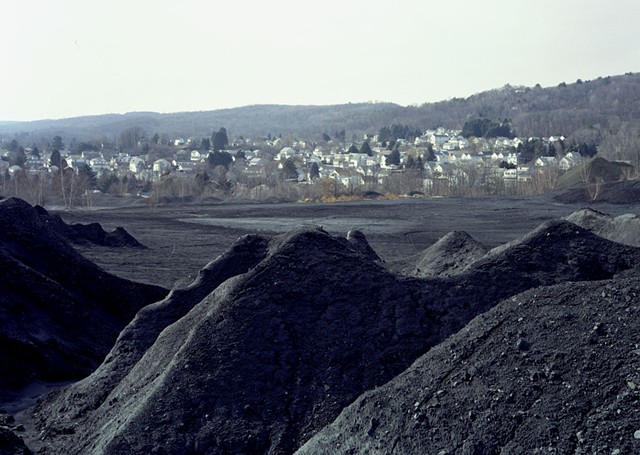Transatlantic Seam: Black Deserts and Grudging Grass
The coalfields of Northeastern Pennsylvannia and South Wales occupy two ends of the Transatlantic seam, a concentration of coal separated by transatlantic drift over a span of millions of years. The areas share a more recent history that stretches back to the mid--Nineteenth Century, a period that saw a major influx of Welsh immigrants into the Wilkes-Barre /Scranton area. New arrivals drawn by the promise of work in the coalfields, often left one mining landscape for another as they confronted an area that bore a number of similarities with their homeland. Over the course of the twentieth century the mining industry in both regions suffered a similar fate, becoming obsolete largely as result of the Knox Mining disaster in Pennsylvania and a series of factors in Wales ranging from the Aberfan disaster in 1966 to the large-scale colliery closings of the Thatcherite Eighties.
These historical and geological links serve as the basis for Transatlantic Seam which juxtaposes the mining landscapes of the South Wales valleys and the Wyoming Valley in Pennsylvania. In addition to a shared history these areas confront similar problems in the present day ranging from issues of reclamation to the role of the heritage industry in the global economy. At the same time, differences become apparent in images of the two areas. The ubiquitous birches that populate the Pennsylvanian culm banks provide a contrast to what Gwyn Thomas described as the “dim, grudging grass” of the Welsh tips. Similarly, the edges of these landscapes reveal different patterns of settlement while the slag heaps themselves are subject to a variety of reclamation efforts. Transatlantic Seam explores these connections in hopes of inspiring a dialogue about the legacy of mining and the future of the landscapes upon which it has left its traces.
